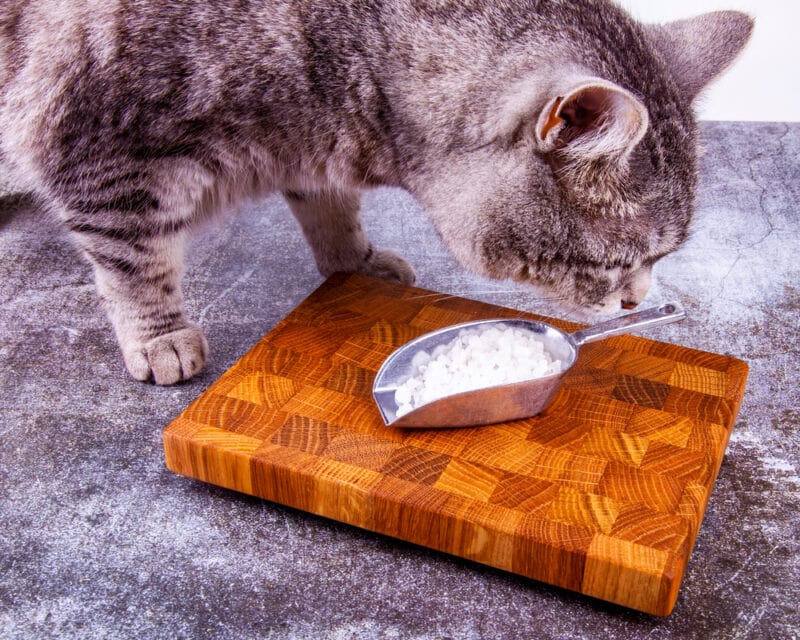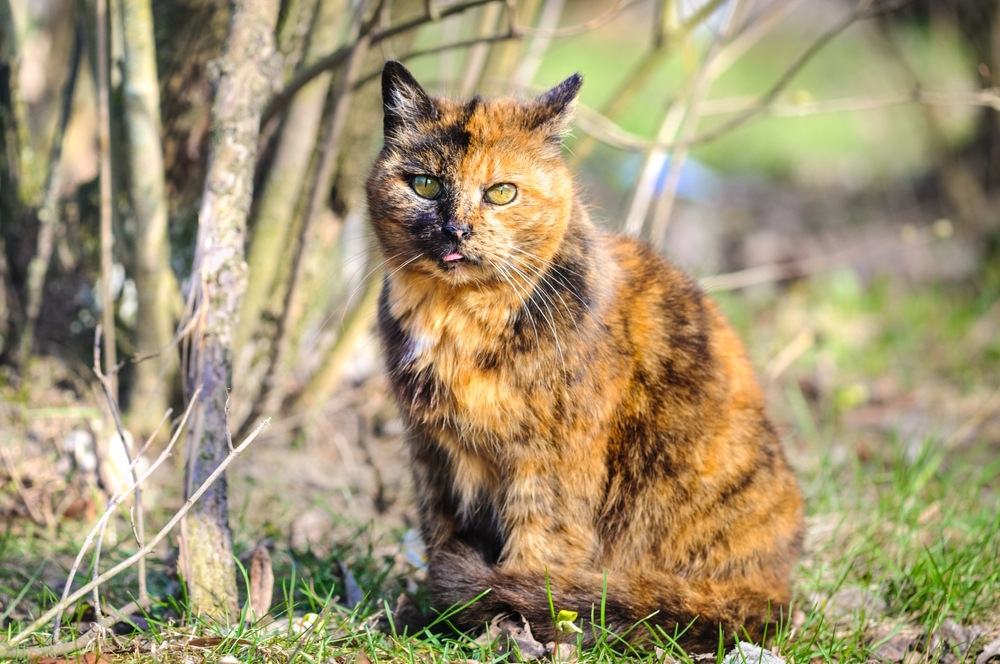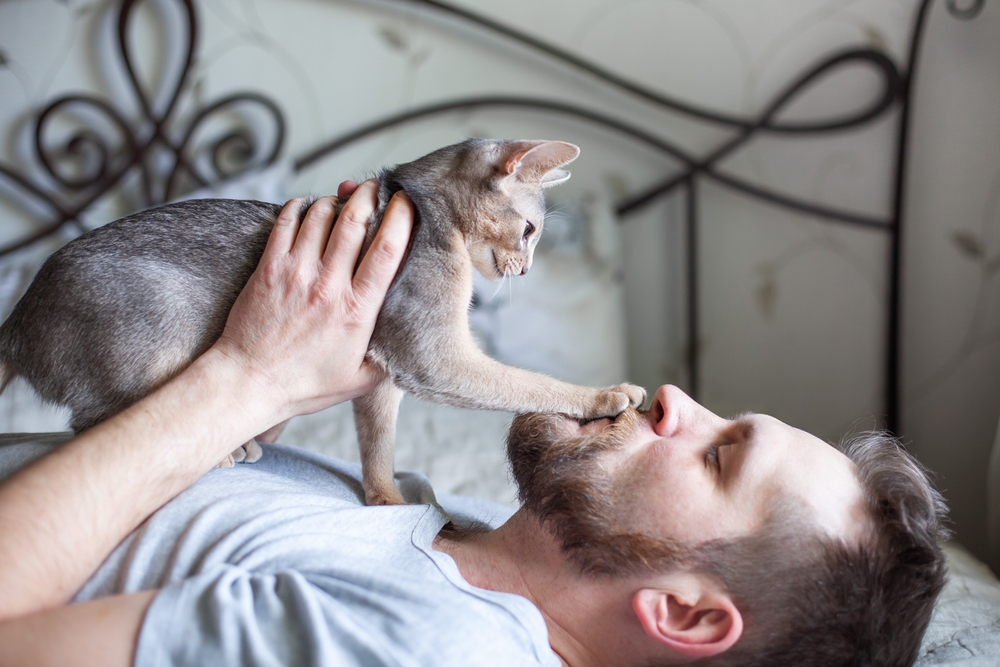There’s nothing quite as tasty as a handful of salty nuts or a bowl of potato chips. But unfortunately, your cat might agree and try to snatch chips right out of your hand. As strange as it may sound that your obligate carnivore, protein-loving cat might try swiping your salty snack, it does happen!
What’s with a cat’s affinity for salty foods, and is sodium okay for cats to eat? Cats can tolerate small amounts of salt, but as with humans, too much of this tasty mineral can cause issues.
Keep reading to learn why cats like salt and what role this essential mineral plays in a cat’s diet.

Why Do Cats Like Salt?
Here are three possible reasons why cats like to lick salt:
1. They Can Taste It
A cat’s sense of taste is weaker than some of its other senses. Humans have around 9,000 taste buds compared to cats’ approximately 470. Cats have taste receptors for sour, bitter, salt, and savory foods but do not taste sweet. So, if your cat loves salty foods, it may simply be because it’s something they can taste.
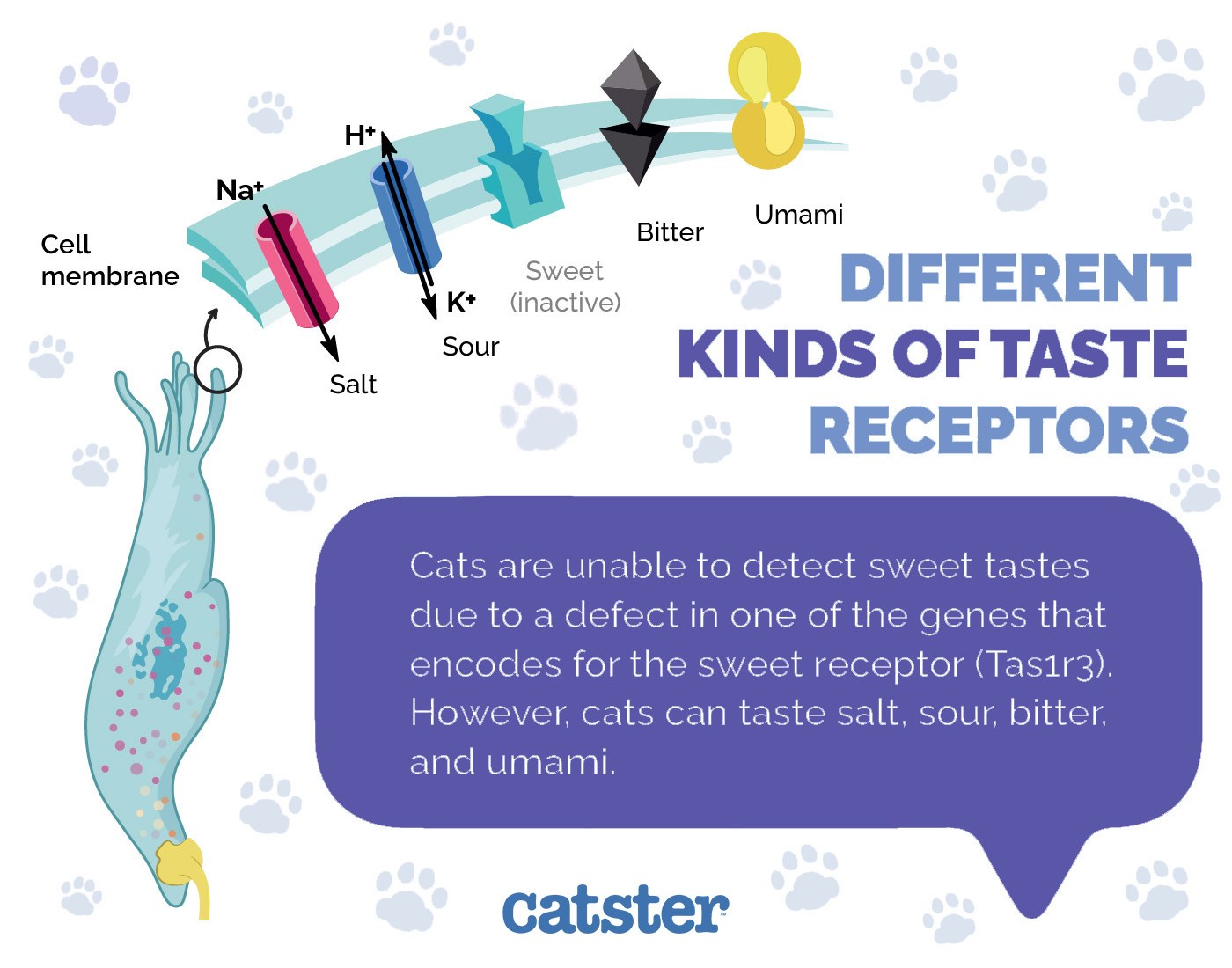
2. They Like It
Because cats can taste salty things, they may be more likely to eat salty food simply because they enjoy the taste of it. This may be why your kitty will lick at your face if they smell tears or sweat.
3. They Need It
Like humans, cats need salt for their bodies to operate as they should. This necessity for the mineral may be one of the reasons cats are drawn to salty things. Sodium is necessary for many bodily functions, including fluid balance, nutrient absorption, and muscle function. You can read more about salt’s role in your cat’s diet below.
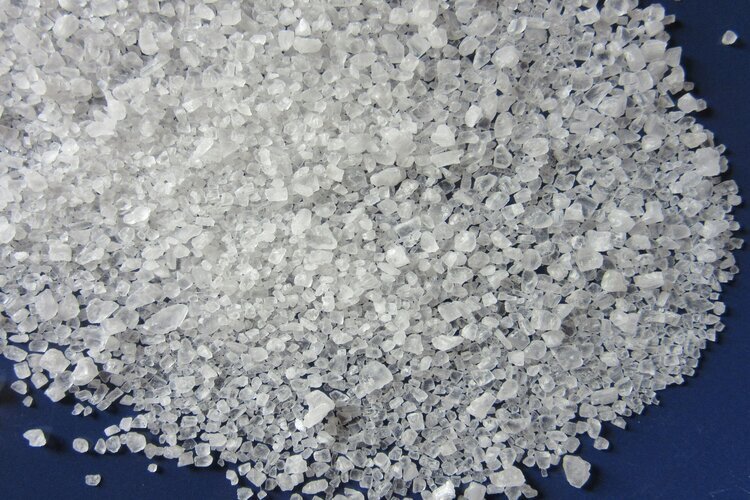
What Role Does Salt Play in a Cat’s Diet?
Despite its bad reputation, salt isn’t an inherently bad mineral. In fact, it is an essential mineral for life in both humans and pets. It’s found in the blood and fluid cells throughout the body.
According to a Doctor of Veterinary Medicine, Brian C. Hurley, salt ensures an appropriate electrolyte balance to promote nerve and muscle cell function1. Salt makes our food and our pet’s food more palatable, is essential for regulating body fluids, and controls blood pressure and volume.
Cat food manufacturers incorporate the appropriate salt level to ensure proper bodily functioning. If you’re curious, the Association of American Feed Control Officials (AAFCO) recommends that dry cat food contain at least 0.2% sodium for maintenance, growth, and development2.
Sodium-restricted diets are sometimes recommended for cats with certain disease states, specifically cardiovascular or renal-related diseases. Many of these recommendations stem from human medicine, and more research is needed into our feline friends. Some research has shown a potential benefit to a higher sodium intake for some cats with lower urinary disease3. However, a subset of cats with this condition will be adversely affected by higher salt levels, so always follow your veterinarian’s advice on the best diet for your cat.
Is It Dangerous for Cats to Eat Salt?
Licking salt or having a piece of food with a few sprinklings of salt is unlikely to cause any problems for your kitty.
The Pet Poison Hotline classifies salt as potentially toxic to pets, but it boils down to quantity and exposure. Like humans, too much or too little salt can cause issues.
However, sudden exposure to too much salt or extremely salty food like pickles can be problematic. Ingesting one gram of salt for every two pounds of body weight is a cause for concern. This would equate to approximately three-fourths of a teaspoon of salt for an average-sized cat. If you know your kitty has eaten a large amount of salt or highly brined food, it’s best to contact your vet for advice, as salt toxicity can be life-threatening.
- Vomiting
- Diarrhea
- Decreased appetite
- Incoordination
- Excessive thirst
- Excessive urination
- Tremors
- Seizures
- Coma

Final Thoughts
Cats are strange; any owner can tell you that! While they may need a meaty diet full of animal-derived protein, there’s no telling when your silly kitty will try swiping your potato chips or gnawing your hamburger’s pickles.
Salt is a necessary part of a cat’s diet, but too much can cause many problems. So, ensure you feed your cat a diet with the appropriate amount of salt, and refrain from adding other sodium-rich foods into their daily regimen.
Featured Image Credit: bellena, Shutterstock

